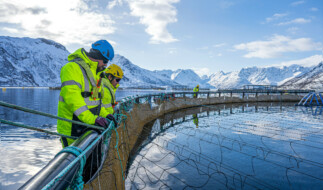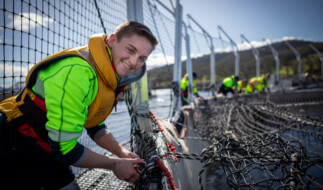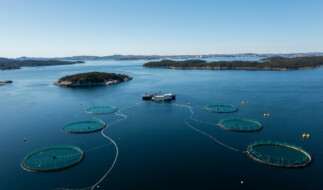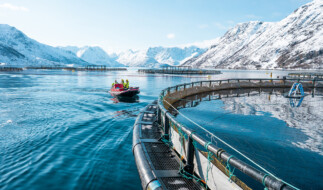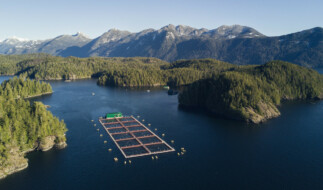Are you keen to know more about the impacts of our work, and the changes we're driving across the global salmon farming sector? Well, look no further. Here we share a number of case studies diving into some of the ways GSI is helping drive industry-wide improvements in sustainability.
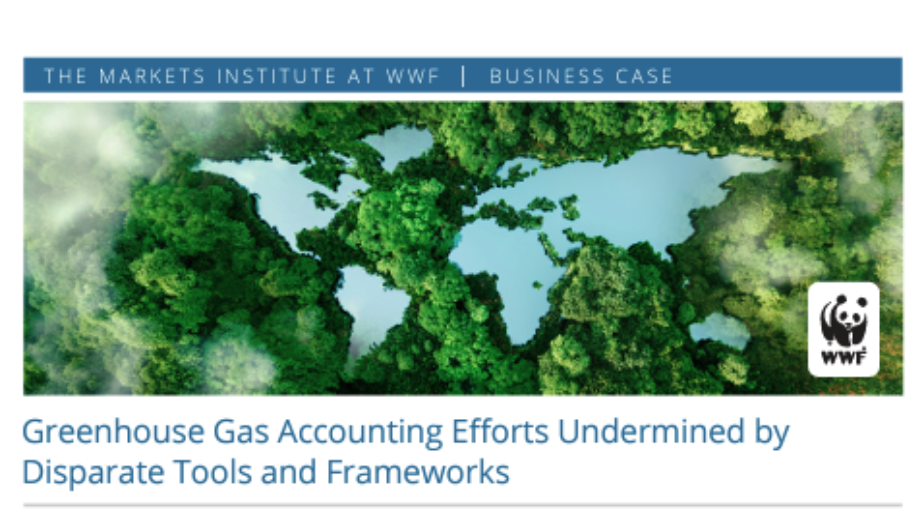
Greenhouse Gas Accounting Efforts Undermined by Disparate Tools and Frameworks
Variability in product-level GHG accounting standards and methodologies can prevent companies from understanding both their true emissions and their progress in reducing them. Greater harmonization in product-level accounting could accelerate progress and enable better cross-organizational comparison. Collaboration among companies can lessen the burden of individual quality control and harmonization by standardizing the way they collect data, request information from suppliers, and report product-based GHG emissions.
Read case study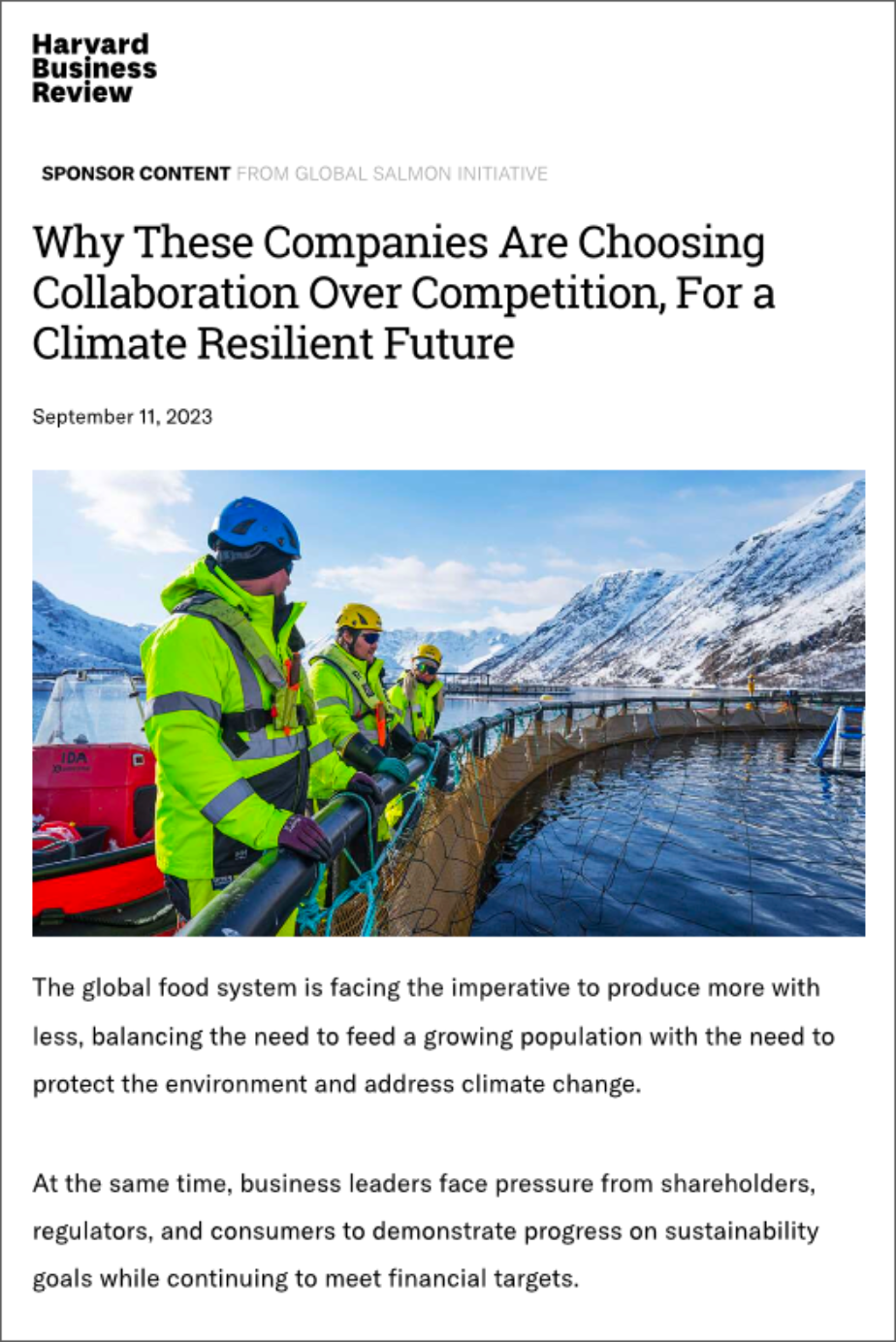
Why these companies are choosing collaboration over competition, for a climate resilient future
This case study highlights the potential of GSI’s pre-competitive change model, showcasing how our members choose collaboration over competition to foster a more climate-resilient future. Over the past decade, GSI has utilized this model to make measurable progress in the sustainability of salmon farming. In this article, learn how our model can be used as a universal blueprint to motivate environmental improvements at the speed and scale the world needs.
Read case study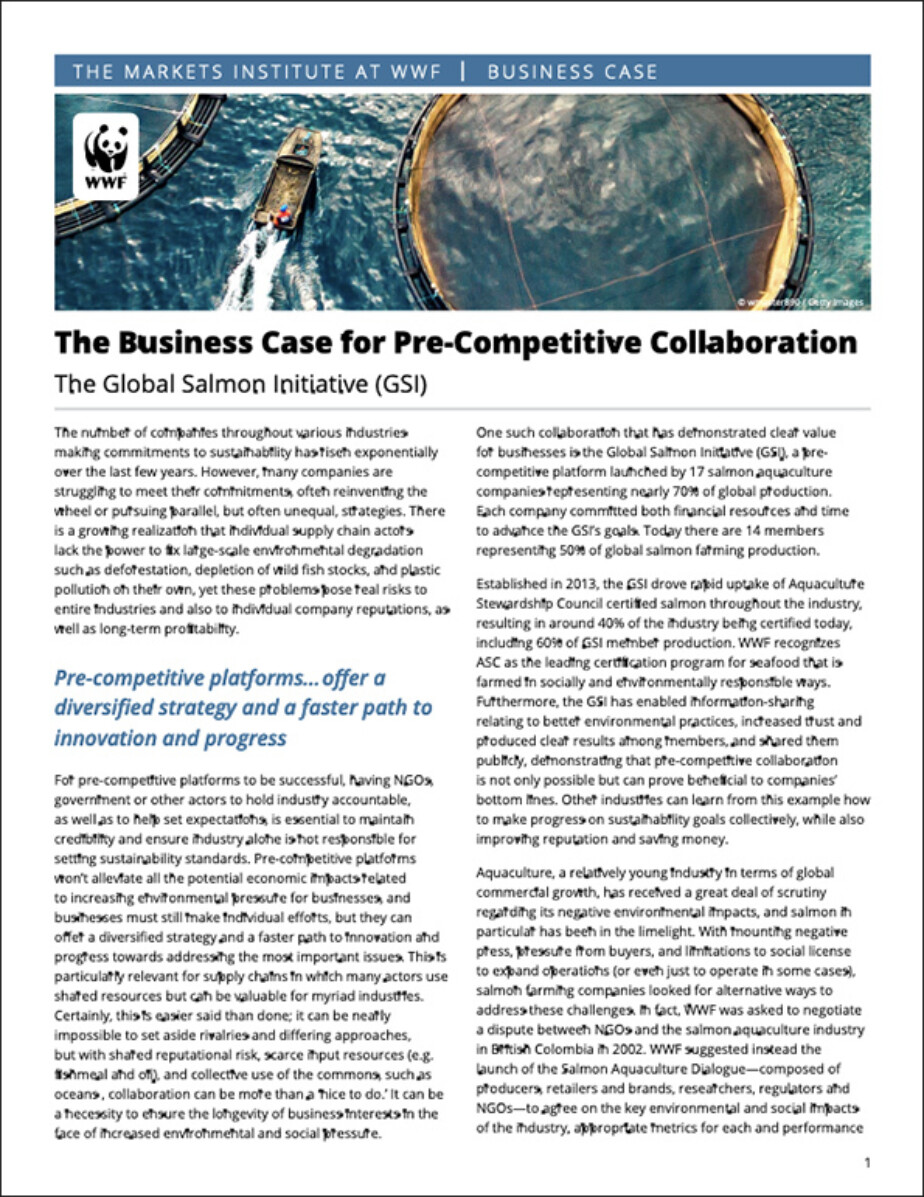
The business case for pre-competitive collaboration
The number of companies throughout various industries making commitments to sustainability has risen exponentially over the last few years. However, many companies are struggling to meet their commitments, often reinventing the wheel or pursuing parallel, but often unequal, strategies. There is a growing realization that individual supply chain actors lack the power to fix large-scale environmental degradation such as deforestation, depletion of wild fish stocks, and plastic pollution on their own, yet these problems pose real risks to entire industries and also to individual company reputations, as well as long-term profitability.
Download case study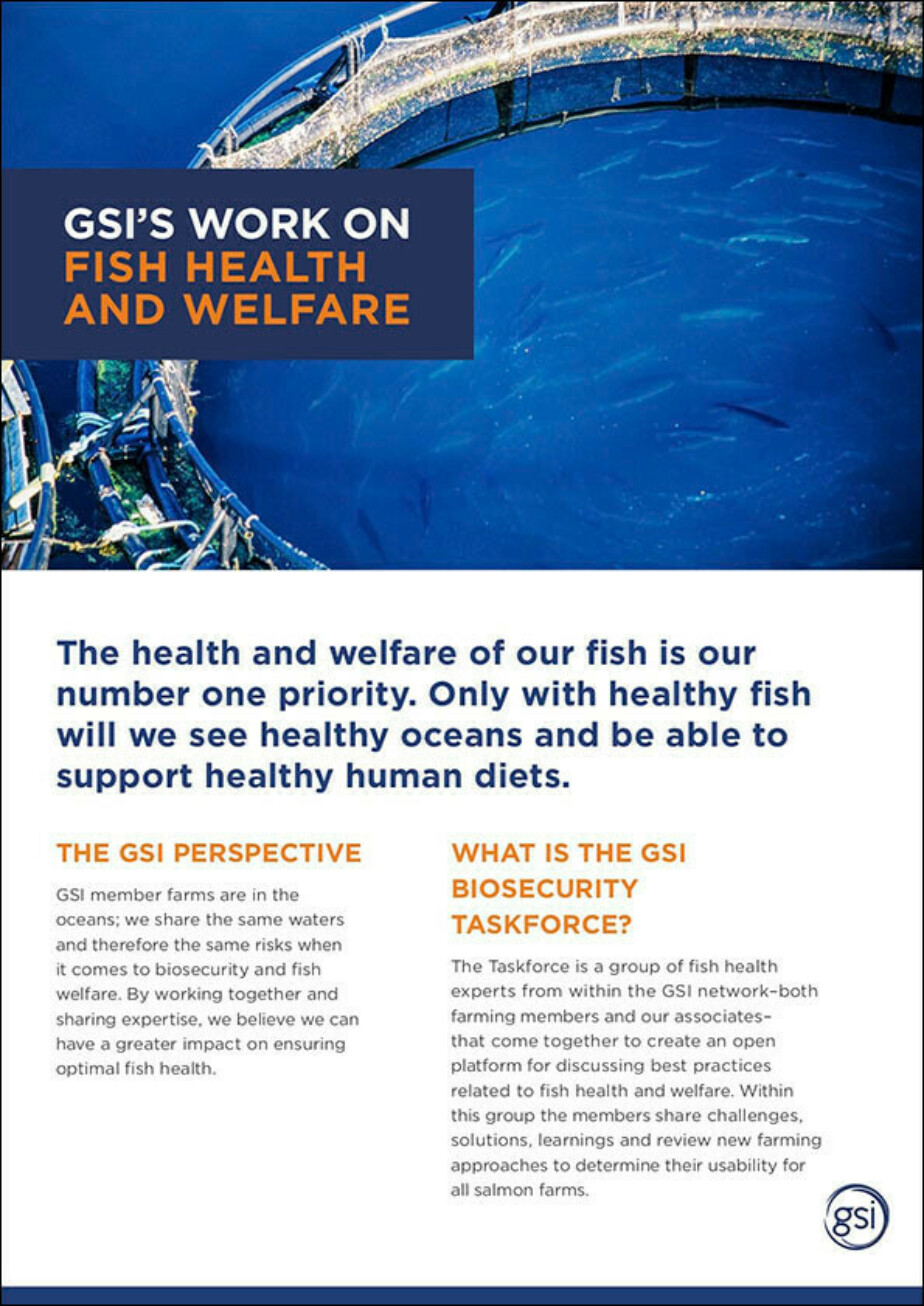
GSI’s work on fish health and welfare
GSI member farms are in the oceans; we share the same waters and therefore the same risks when it comes to fish health and fish welfare. By working together and sharing expertise, we believe we can have a greater impact on ensuring optimal fish health.
Download case study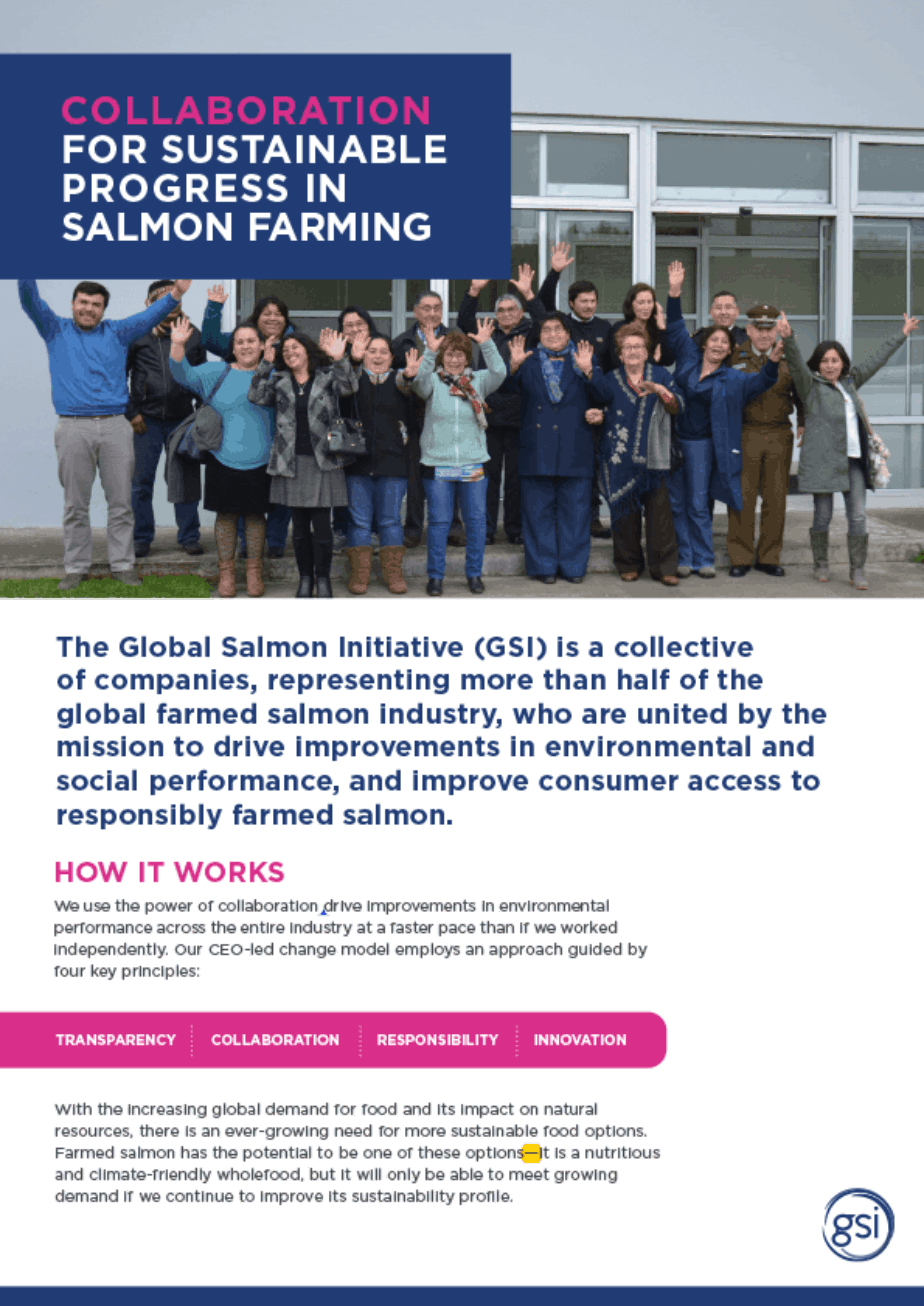
Collaboration for sustainable progress in salmon farming
GSI is a collective of companies from the global farmed salmon industry that are united by the mission to drive improvements in environmental and social performance of the industry - and improve consumer access to responsibly farmed salmon.
Download case study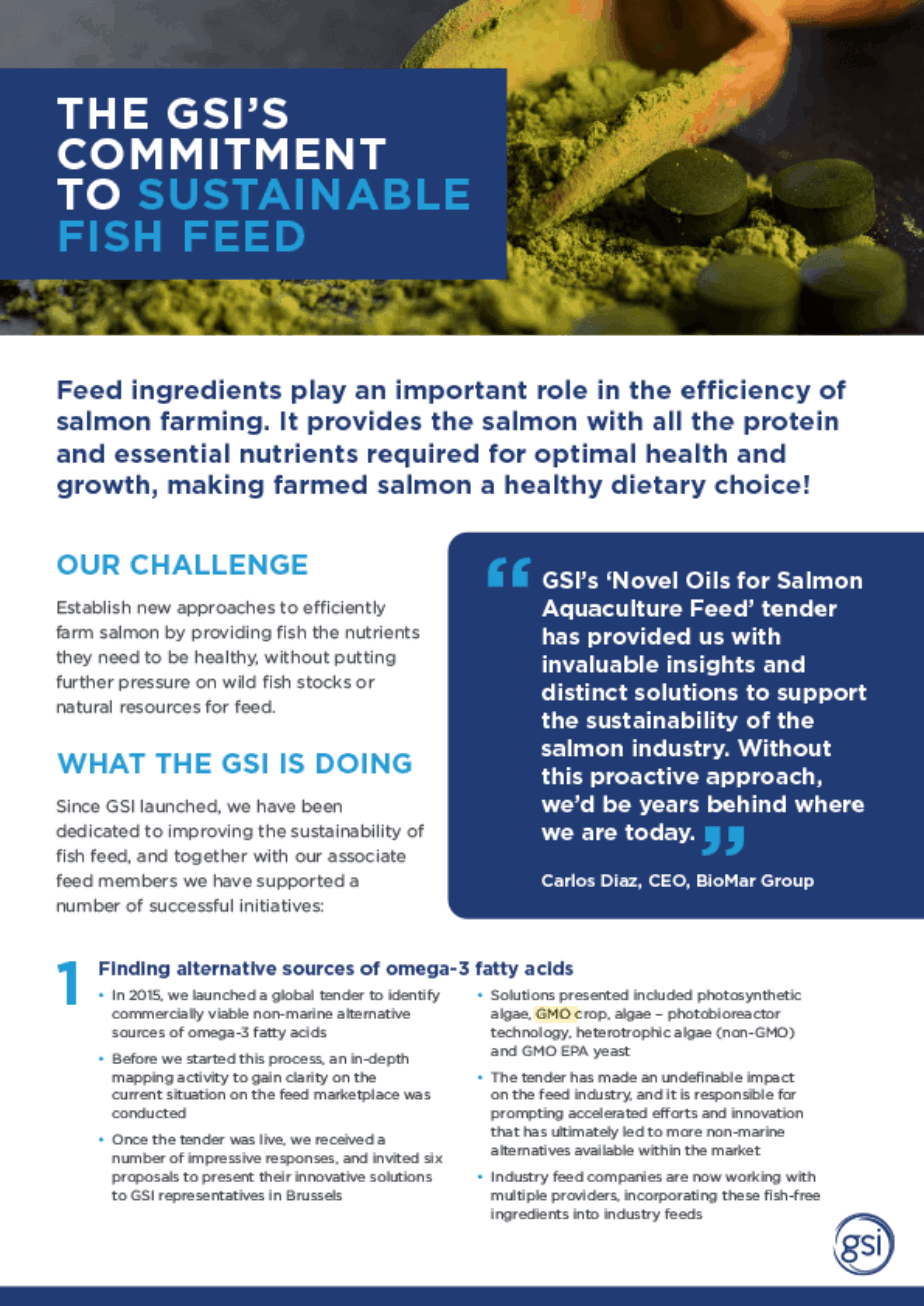
GSI’s commitment to sustainable fish feed
Feed ingredients play an important role in the efficiency of salmon farming and ensuring optimal fish health. It is our responsibility to maintain fish health while reducing our footprint and ensuring responsible resource use.
Download case study
Feed of the Future: Transparent and Traceable
Feed is a major contributor to the footprint of animal husbandry, and an area where GSI members are committed to making measurable improvements. Together with WWF GSI have developed a first-of-its-kind ESG Risk Assessment Tool for feed ingredients. The ESG tool provides a holistic overview of possible ESG risks in the feed supply chain allowing companies to identify and mitigate risk improving the sustainability of the sector. Here we explain how the tool works.
Download case studyData for Progress: Global Salmon Initiative's Collaborative Approach
The Blue Food Partnership initiative, led by Friends of Ocean Action in collaboration with the World Economic Forum and World Resources Institute, is designed to catalyze science-based actions towards healthy and sustainable blue food value chains. In this case study, they highlight the benefits of GSI's Change Model to accelerate knowledge-driven solutions for improved sustainability.
Read case study